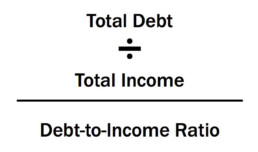First-Time Homebuyer Guide: Buying a Home in Las Vegas
Buying your first home is one of the biggest milestones of your life, and in a city like Las Vegas—where the real estate market moves quickly, neighborhoods each offer a unique lifestyle, and financing options can feel overwhelming—it’s important to have the right guidance.
This guide will walk you through everything you need to know as a first-time homebuyer in Las Vegas. From preparing your finances to choosing the right neighborhood, you’ll see the steps that make your purchase smoother and more successful.
Why Las Vegas is a Great Place for First-Time Buyers
Las Vegas isn’t just the “Entertainment Capital of the World.” Over the last decade, it has grown into a thriving city with family-friendly communities, expanding job opportunities, and a strong real estate market. Here’s why first-time buyers are drawn to Vegas:
- Affordability Compared to Other Major Cities: Prices have risen, but Las Vegas is still more affordable than many coastal markets like Los Angeles or San Francisco.
- No State Income Tax: Nevada has one of the most tax-friendly environments, so homeowners keep more of their income.
- Variety of Communities: You can choose a modern condo on the Strip, a new build in Summerlin, or a quiet neighborhood in Henderson—because the city has something for everyone.
- Strong Job Market: With tourism, technology, and logistics industries growing, the local economy provides stability for homeownership.
Step 1: Prepare Your Finances
Before you start shopping for homes, it’s important to take an honest look at your finances, because being prepared will make the process less stressful.
Check Your Credit Score
Your credit score plays a big role in determining what kind of mortgage you qualify for and the interest rate you’ll receive. Aim for a score of 620 or higher, but some loan programs can work with lower scores.
Save for a Down Payment
Traditionally, buyers put down 20%, but in today’s market, first-time homebuyers have more flexible options:
- FHA loans can require as little as 3.5% down.
- VA loans (for veterans and military families) often require no down payment.
- Conventional loans may allow for 3–5% down.
Get Pre-Approved for a Mortgage
Pre-approval not only shows sellers you’re serious, but it also gives you a clear picture of your budget. A local lender like The Derek Parent Team can walk you through the process and help you choose the right loan for your situation.
Step 2: Understand the Las Vegas Market
The Las Vegas housing market can be competitive, and prices vary depending on location, amenities, and demand.
- Entry-Level Homes: Many first-time buyers start with townhomes or smaller single-family houses.
- New Construction: Builders in Summerlin, North Las Vegas, and Henderson often offer incentives like closing cost assistance, so these can be a great option.
- High-Rise Condos: If you love city living, high-rises near the Strip offer luxury amenities but often come with HOA fees.
Because the market changes quickly, it’s smart to work with a professional who can help you set realistic expectations. You might face multiple-offer situations, so being prepared will give you an advantage.
Step 3: Choose the Right Neighborhood
Las Vegas is made up of diverse communities, and each has its own lifestyle. Here are a few popular areas for first-time buyers:
- Summerlin: Known for its master-planned communities, great schools, and parks. It’s perfect for families and professionals.
- Henderson: Offers a suburban feel with access to Lake Mead, shopping, and family-friendly neighborhoods.
- North Las Vegas: More affordable options with newer builds and expanding amenities, so it’s ideal if you’re looking for value.
- Southwest Las Vegas: Up-and-coming with plenty of new construction and easy access to the Strip.
Think about your lifestyle and priorities. Do you want to be close to work, or do you prefer quiet streets? Do you need great schools, or are amenities more important? Your answers will help narrow your search.
Step 4: Work with the Right Real Estate and Mortgage Professionals
Buying your first home can feel overwhelming, but you don’t have to do it alone. Having a trusted team by your side makes all the difference.
- Realtor: Helps you find properties, negotiate offers, and guide you through closing.
- Mortgage Lender: Assists with financing options, pre-approvals, and making sure your loan closes smoothly.
- Home Inspector: Ensures your home is in good condition before you buy.
At The Derek Parent Team, we specialize in helping first-time buyers navigate financing options in the Las Vegas market. Because we’ve been in the industry for decades, we know how to make the process simple and stress-free.
Step 5: Make an Offer
Once you’ve found the right home, it’s time to make an offer—and strategy is everything.
- Be Competitive: In a hot market, lowball offers often get rejected.
- Include a Strong Pre-Approval Letter: This reassures the seller you’re financially ready.
- Consider Seller Incentives: Builders and sellers sometimes offer credits toward closing costs, so ask your agent to negotiate these for you.
Step 6: Closing the Deal
The closing process typically takes 30–45 days. During this time, you’ll:
- Finalize your mortgage paperwork
- Complete inspections and appraisals
- Sign your closing documents
It can feel like a lot, but once you’re done, you’ll officially get the keys to your new home.
Tips for First-Time Homebuyers in Las Vegas
- Don’t Skip the Inspection: Even if the home looks perfect, inspections can reveal costly issues.
- Know Your Budget Beyond the Mortgage: Property taxes, HOA fees, and utilities all add up, so plan ahead.
- Think Long-Term: Buy a home you can grow into, not just one that works for right now.
- Stay Flexible: The right home might not check every single box, but it should meet your most important needs.
- Leverage First-Time Buyer Programs: Nevada offers down payment assistance and other incentives, so take advantage if you qualify.
Final Thoughts
Buying your first home in Las Vegas is an exciting step, and with the right preparation, it doesn’t have to feel overwhelming. The city has a strong economy, a wide range of neighborhoods, and flexible financing options—so there’s truly something for every type of buyer.
The key is preparation: understanding your finances, working with trusted professionals, and knowing what to expect in the market.
If you’re ready to take the next step, connect with The Derek Parent Team. We’ll guide you through the process, answer your questions, and help you secure the right loan for your first home in Las Vegas.
How Rising Interest Rates Affect Home Buyers in Las Vegas
Buying a home in Las Vegas is an exciting step. From new builds in Summerlin to family-friendly communities in Henderson, the real estate market here offers something for everyone. But one factor shaping the decisions of home buyers right now is rising interest rates. Mortgage rates play a big role in how affordable a home really is, and many buyers wonder what higher rates mean for their budget, loan options, and long-term financial stability.

In this article, we’ll break down how rising interest rates affect home buyers in Las Vegas, what it means for affordability, and what strategies you can use to still achieve your dream of homeownership.
Why Do Interest Rates Matter for Home Buyers?
When you buy a home, chances are you’ll need a mortgage. Your interest rate determines how much you’ll pay the lender over time. Even a small increase can make a noticeable difference in your monthly payment.
For example:
- A $350,000 home with a 5% interest rate might cost around $1,880 a month (principal and interest).
- At 7%, that same loan jumps to about $2,330 a month.
That’s nearly $450 more each month—money that could otherwise go toward savings, upgrades, or day-to-day expenses.
In a city like Las Vegas, where the housing market is competitive, rising interest rates can affect not only what you can afford but also how quickly homes sell.
The Las Vegas Housing Market and Rising Rates
Las Vegas has long been an attractive market for buyers moving from other states, especially California, because of relatively affordable housing and no state income tax. However, with interest rates rising, buyers are noticing:
- Reduced purchasing power – Many buyers now qualify for smaller loan amounts than they did a year or two ago.
- Slower price growth – Home prices may level out as higher rates cool demand.
- Increased competition for affordable homes – Entry-level homes are in even greater demand since higher rates make luxury properties less attainable.
For local buyers, this means adjusting expectations. For out-of-state buyers, it could mean comparing Las Vegas homes not only to prices in their former city but also to their new borrowing costs.
How Higher Rates Affect Loan Programs
Not all mortgages react the same way to rising rates. Depending on your financial situation, you may still find options that keep homeownership within reach.
FHA Loans
For many first-time buyers, FHA loan programs in Las Vegas remain a strong option. FHA loans often come with lower down payment requirements and more flexible credit standards. While interest rates affect FHA loans just like conventional ones, the lower barriers to entry can make them a practical choice even in a higher-rate environment.
Adjustable-Rate Mortgages (ARMs)
Some buyers turn to ARMs, which typically start with a lower rate than fixed-rate mortgages. This can help lower initial payments, though rates may rise later.
Refinancing Options
If you buy at a higher rate today, you’re not locked in forever. Down the road, you can explore options to refinance your mortgage if rates drop again, potentially lowering your monthly payment.
Budgeting and Affordability in a Higher Rate Environment
When interest rates rise, it’s essential to revisit your budget. Homeownership involves more than just the mortgage—it also includes property taxes, insurance, utilities, and HOA fees (common in Las Vegas communities).
Here are a few strategies:
- Get pre-approved early – This helps you understand exactly what you can afford at current rates.
- Consider a slightly smaller home or different neighborhood – Expanding your search beyond the Strip-adjacent areas can uncover more affordable options.
- Look at debt management – If high-interest debts are weighing on your ability to qualify, exploring debt consolidation solutions could improve your financial standing and increase your mortgage options.
What Rising Rates Mean for Sellers—and Buyers
While higher interest rates create challenges, they also open opportunities.
- For buyers: Slower price growth and reduced competition from investors may give you more negotiating power.
- For sellers: Homes may take longer to sell, and pricing competitively becomes more important.
In Las Vegas, where the market has been fast-moving for years, rising rates may create a more balanced environment. Buyers who were once outbid may now have a better shot at securing the home they want.
Long-Term Perspective: Why Buying Still Makes Sense in Las Vegas
Even with rising rates, buying a home in Las Vegas can still be a wise investment. Consider:
- Rent vs. Buy – Rental prices in Las Vegas continue to rise, and monthly rents can rival or exceed mortgage payments.
- Equity Building – Owning a home allows you to build equity, which is not possible when renting.
- Future Refinancing – Today’s rates might seem high compared to a few years ago, but historically they’re still within normal ranges. Buying now means you can refinance later if rates decline.
For buyers planning to stay in their home for several years, the benefits of ownership often outweigh the temporary challenges of higher interest rates.
Tips for Navigating the Current Market
- Work with an experienced local team – Navigating the Las Vegas housing market requires insight into neighborhoods, builders, and financing programs.
- Stay flexible – Have a list of must-haves and nice-to-haves to widen your options.
- Focus on long-term value – Don’t just buy for today’s rate; think about how the home fits your lifestyle and goals over the next 5–10 years.
- Lean on mortgage solutions – Explore FHA, conventional, and refinance options to find the right fit for your budget.
Final Thoughts
Rising interest rates are changing the landscape for home buyers in Las Vegas, but they don’t have to put their homeownership dreams on hold. By understanding how rates affect your budget, exploring flexible loan programs, and planning for the long term, you can still find the right home in this vibrant city.
At Derek Parent Team, we help buyers navigate today’s market with personalized mortgage solutions, whether it’s through FHA loan programs in Las Vegas, refinancing options, or debt consolidation solutions to strengthen your financial foundation.
Las Vegas remains a city of opportunity, and with the right guidance, you can make smart moves—even in a higher interest rate environment.
Gifting a Home
Are you planning on gifting a home to someone this holiday season? For most people, a gift this generous is probably out of the question. But maybe you had a good year financially, and a family member needs the help. Whatever the case is, here are some guidelines when it comes to giving the gift of real estate.
Buying a new home outright
Instead of buying a new home outright, it may be wise to gift the cash for the home, NOT the home itself. Everyone has their own preferences when it comes to what they want in a home, so allowing the recipient of your generous gift to choose their home is probably a much safer idea.
We highly recommend running this by your accountant, as you may also need to file a gift tax return.
Gifting the down payment
Gifting money for a down payment works in pretty much the same way—except when it comes to the mortgage. If there’s even the slightest hint that the money is a loan rather than a gift, it can hinder the recipient’s ability to get a mortgage.
You’ll want to work closely with the recipient’s lender to file the appropriate paperwork, which will include a verified gift letter certifying the funds are a gift, not a loan. The lender will also likely need to examine your finances to determine if you’re able to gift. And remember, most lenders won’t permit gifts from nonfamily members.
Gifting an existing home
Would your children love to own the home they grew up in? Unfortunately this is a poor option, especially if both parents are still living.
One of the tricky struggles with gifting a home you own is the differential between the cost basis (what you first paid for the house) and the current fair market value—which could be hundreds of thousands of dollars, depending on how long you’ve owned it and the appreciation in the area.
This might not matter if your children plan to live in the home forever: The gift will be subject to your gift tax limit, and they’ll only pay capital gains tax if they sell. But if (and, likely, when) they sell, they’ll be stuck paying taxes on the difference.
If you’re determined to gift someone a home this holiday season, remember to keep these guidelines in mind. It IS possible, but of course it’s extremely important to consult your accountant and/or financial advisors to ensure it’s done in the right way.
Debt vs. Income: What You Need to Know
Income is a crucial component lenders consider when granting you a mortgage. However, income is not all that a lender will consider when determining how much you qualify for. They will also look at your debt to income ratio, in addition to other financial indicators.
If you make a lot of money but also have a lot of debt, this could be a red flag to lenders and reduce your borrowing capacity.
How debt & income affect your mortgage
Income and debt are yin and yang, opposites of each other. Debt is a liability, whereas the more income you have, the more power you have to make those liabilities go away. Having more income also gives more control of the following.
- It allows you to prepay your mortgage faster.
- It allows you to qualify for more when buying a home.
- It allows you to move into a shorter and more aggressive debt pay-down structure such as a 15-year fixed-rate mortgage.
- It allows you to pay off your credit cards in full every month, rather than paying unnecessary and pricey interest (assuming you’re making smart financial choices).
- It allows you to consume smart debt, such as purchasing a rental property that can generate even more income.
- It allows you to make investments, generating more income.
- It allows you to save and plan for the future.
Having this control over these and other financial choices is precisely why it is CRUCIAL to carry a debt-to-income ratio no bigger than 36% of your gross monthly income. The goal when borrowing mortgage money is to put yourself in a position where you can have a life beyond paying it off, while still saving and contributing to your retirement savings.
What you need to consider before you buy
Always remember it takes $2 of income to offset every $1 of debt for a 2:1 ratio for mortgage qualifying purposes.
If you want that fancy Mercedes at an $800 per month car payment, then you’ll need $19,200 a year in extra income or you’ll need to cut a current debt payment of $800 to balance your debt-to-income ratio.
If you want the dream house at $3,500 month, then aim your debt-to-income ratio at 36%—meaning you would ideally want income at $117,000 a year without carrying other consumer obligations in order to afford this mortgage.
When you are thinking about buying a home, also remember to consider what the future holds for your finances. For example, if your monthly expenses will likely increase in the future due to expenses like childcare costs or college tuition, this is something important to keep in mind. By keeping your debt to income ratio below 36% of your gross monthly income, you’ll put yourself in a position to enjoy your new home but also be able to continue saving for your future.
5 Traits to Look for in a Realtor
Choosing the right real estate agent to help you buy or sell a home is no easy task! In fact, it can make all the difference in the world. The wrong agent can cost you time and money, and possibly even your potential dream home!
When you're interviewing potential agents, make sure they have these five qualities.
1. Remarkable Listener
The true to key to a good agent is how well they listen and retain what they heard. If you say your budget maximum is $250,000, then they should stick to within that price when providing properties to view. A good listener should quickly ascertain your needs and wants and have a plan of approach based on your criteria.
2. Great Communicator
No one wants an agent who lists a home and is rarely heard from again. You want an agent who is enthusiastically speaking to you often on what is happening in either the selling or buying process. Your agent should inform you about how she or he will deal with your transaction from start to finish. An agent who is in constant communication with you should also be in continual communication with all other parties in the transaction to keep you better apprised. The agent should return any texts, calls or emails as quickly as possible.
3. Amazingly Honest
Dishonesty breeds distrust. You want an agent whom you can always trust to be truthful and upfront throughout the entire sales process, even if the outcome is not easy to hear. An honest agent will price the property right at listing for a quick sale or inform the buyer of unseen issues with the home they are interested in. Having a trusted professional on your side means there is one less thing to worry about.
4. Incredibly Ethical
An agent who is also a Realtor suggests that a strict code of ethics will be adhered to throughout the transaction process. Abiding by the Realtor Code of Ethics means necessary transaction facts are not misrepresented or concealed, contract deals are completely spelled out in the writing, all people are treated equally and your best interests will be protected, among other code specifications.
5. Natural Negotiator
The best agents are natural negotiators, able to seal a deal with shrewd and aggressive bargaining skills. Excellent negotiators save you money and seal the deal faster. Ask a potential agent to describe their most difficult negotiation and what the outcome was or provide a difficult scenario and find out how that agent would handle it.
If you're buying or selling in the Las Vegas area and are looking for a good real estate agent, give me a call at 702.331.8185! I work with a lot of outstanding agents and will be happy to give you some referrals.
Unexpected Homebuying Roadblocks
Your offer has been accepted on your dream home and you have a down payment, good credit, and little debt. So the escrow process should be a breeze, right? WRONG! There are some surprising deal breakers that can quickly cause the transaction to go south. Here are a few of the most common ones.
Closing Lines of Credit
Maybe you’ve realized you have a few more credit cards than you’d like your lender to see. Time to shut ’em down before they check your credit, right? Not so fast. Closing down multiple accounts could actually ding your credit. Credit is composed of a few key components, the age of an opened account being one biggie. Shutting down multiple accounts will also lower your credit utilization rates, which can be yet another credit killer. Research the impact of any change to your credit before taking action.
Not Calculating the True Cost of your Mortgage Payment
The cost of homeownership goes far beyond a monthly mortgage check. There are HOA fees, maintenance costs, PMI, etc. Make sure you’ve calculated — and recalculated — whether the cumulative costs will be feasible. You don’t want a nasty surprise when you finally crunch your numbers and realize they don’t fit within your current financial circumstances.
Forgetting Maintenance Costs
Remember that you’ll have to spend much more time and money on the dream house with a pool in the backyard. If you simply don’t have the budget for a home with a pool, communicate this to your agent before you start looking at houses. The last thing you want is to end up falling in love with a home you simply can’t afford to maintain.
Assuming Fixtures are Part of the Deal
Make sure you and the seller agree on exactly what will be included — and what the seller will be taking to their new home sweet home. Things such as light fixtures are often assumed to be a part of the package, but if it’s an heirloom chandelier from the seller’s grandma, chances are they’ll consider it fair game to take when they go. Set out clear expectations of what’s staying and what’s going to avoid any confusion or upset.
Buying a home can be stressful, but with a little preparation (and the right lender and real estate agent) things can go relatively smoothly. No matter what happens, remember to stay flexible. Some things may arise that are out of your control. How you respond can ultimately sway the outcome — and hopefully get you the house of your dreams!
How to Choose Between a 30-Year & 15-Year Mortgage
Buying a home is a huge financial decision, and choosing the right mortgage can be difficult. If you're wondering whether to choose a 15-year mortgage or 30-year mortgage, here are 4 things to consider.
1) Can You Afford to Get a 15-Year Mortgage?
Although a 15-year mortgage offers a lower interest rate relative to a 30-year mortgage, thereby allowing borrowers to pay interest for only half as long, a 15-year mortgage comes with a higher total monthly payment. This is because the principal loan amount must be paid off faster, making each principal payment larger.
If you can afford the higher monthly payment associated with a 15-year mortgage, it might be worth considering.
2) Are You Buying Your First Home?
First-time home buyers often benefit from selecting a 30-year mortgage because the monthly payments are lower. A longer-term mortgage can make a more expensive home more affordable for a new buyer.
Of course, 15-year and 30-year mortgages are not the only options available to consumers. Borrowers can take an adjustable-rate mortgage, which offers a low initial rate that stays unchanged for some period, such as five years. When the period expires, borrowers could pay more if interest rates rise. But for buyers who are not looking to own their home for too long and who are confident that they will be able to resell the home, an adjustable rate mortgage may be a sensible option.
3) Are You Planning on Retiring Soon?
How close a borrower is to retiring plays a major role in whether to take out a 15-year mortgage. Typically, borrowers who take 15-year mortgages are at least 40 years old. These borrowers are often willing to pay off the balance on their mortgages faster in order to retire with little or no outstanding debt on their homes. However, many older homeowners also must weigh prepayment — making early payments on their mortgage — against the need to save for retirement.
4) Do You Have a Strict Savings Plan?
Choosing a 15-year mortgage over a 30-year mortgage also may be a worthwhile choice if you are not a disciplined saver. But many people may lack the discipline needed to save long-term, especially in amounts that would offset what they would save by switching to a 15-year mortgage.
If you're wondering which is right for you, contact my office at 702.331.8185 and one of my team members will be happy to assist you.
What Happens if You Inherit a Mortgage?
Most homeowners have mortgages, and the sad reality is all homeowners die eventually. And, if a homeowner dies with an outstanding mortgage loan, the mortgage company still expects to be paid. Whether the balance owed will be due all at once or can be paid off over time depends on who inherits the home and the state where thedeceased’s estate is being administered.
Who will owe?
If someone dies owing money on a conventional mortgage, the mortgage company must usually be formally notified of the death as part of the probate process. However, if the deceasedtransferred his or her home to a living trust, such notice may be optional. (Sometimes the loan documents require it.)
If the home is owned by spouses and one of them dies, the mortgage company may allow the surviving spouse to make payments without interference since the loan had been extended to both parties.
If, however, the property is inherited by someone else, such as the deceased’s children, or if the home was just in the name of the deceased, the mortgage company may require the new owner to refinance the mortgage or pay the entire loan balance owed within a fairly short period of time. If the new owner is unable to meet its demand, the lender can foreclose on the home. (If the home was ultimately lost to foreclosure, that should not affect the credit of the “heir” because the heir was never personally obligated to pay the mortgage.) Flexibility on the part of the mortgage company in these circumstances is difficult to predict.
What should I do if I can’t pay?
Sometimes, people do not notify the mortgage company of a mortgage holder’s death and simply continue paying the loan. This scenario might happen, for example, if the heir to the home has bad credit, cannot afford to refinance or, alternately, pay the entire balance due, and yet wants to hold on to the house.
This strategy, however, could blow-up in the heir’s face should the mortgage company discover the ruse because the mortgage documents themselves will allow a foreclosure if the company is not notified of the death within a specific period of time.
All 50 states have laws that regulate mortgages at death. The very best option is to consult with an experienced estate attorney in the state where the home is located. That way, you can learn what specific options you may have.
This article was written by Brad Wiewel and originally published on Credit.com.
What's the Difference Between Getting Pre-approved & Pre-qualified?
Many people mistakenly believe that getting pre-approved for a mortgage is the same thing as getting pre-qualified. They are NOT the same! Here's the difference:
Getting Pre-qualified
Most sellers will require your pre-qualification letter before they’ll even consider your offer. Ask your lender for a prequalification letter. These are relatively simple to get and they just give a rough, unverified estimate of the loan size you may qualify to receive. Most lenders will give you a pre-qualification based on your verbal self-reporting of your income, assets, debts, and down payment size.
Estimated time: 2–3 days
Getting Pre-approved
The pre-approval stage is when lenders verify everything you’ve told them. You’ll need to supply proof of income, proof of assets, proof of employment, records of any debts you hold, and of course identification documents (such as your Social Security card) and a credit report (which the lender will run).
Once you’re pre-approved, you’ll receive a letter stating the exact amount of loan for which you’re approved.
Estimated time: 1 week to several months.
3 Things to Know about FHA Loans
FHA loans are popular with mortgage borrowers because of lower down payment requirements and less stringent lending standards.
Simply stated, an FHA loan is a mortgage insured by the Federal Housing Administration, a government agency within the U.S. Department of Housing and Urban Development. Borrowers with FHA loans pay for mortgage insurance, which protects the lender from a loss if the borrower defaults on the loan.
Less-than-perfect credit is OK
Minimum credit scores for FHA loans depend on the type of loan the borrower needs. People with credit scores under 500 generally are ineligible for FHA loans. The FHA will make allowances under certain circumstances for applicants who have what it calls "nontraditional credit history or insufficient credit" if they meet requirements. Ask your FHA lender or an FHA loan specialist if you qualify.
Lender must be FHA-approved
Because the FHA is not a lender, but rather an insurer, borrowers need to get their loan through an FHA-approved lender (as opposed to directly from the FHA). Not all FHA-approved lenders offer the same interest rate and costs -- even on the same FHA loan.
Costs, services and underwriting standards will vary among lenders or mortgage brokers, so it's important for borrowers to shop around.
Closing costs may be covered
The FHA allows home sellers, builders and lenders to pay some of the borrower's closing costs, such as an appraisal, credit report or title expenses. For example, a builder might offer to pay closing costs as an inducement for the borrower to buy a new home.
Borrowers can compare loan estimates from competing lenders to figure out which option makes the most sense.











